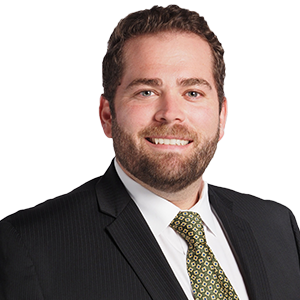

The Majors Law Group handles
bankruptcy cases including:
- Foreclosures
- Repossessions
- Wage Garnishments
- Creditor Harassment
- Collection Lawsuits
- IRS Issues
- Chapter 7
- Chapter 13

Dominic Majors, Esq.
Licensed in Washington and Arizona

Alison Majors
Office Manager – Non Lawyer
The Majors Law Group handles bankruptcy cases including:
- Foreclosures
- Repossessions
- Wage Garnishments
- Creditor Harassment
- Collection Lawsuits
- IRS Issues
- Chapter 7
- Chapter 13

Dominic Majors, Esq.
Licensed in Washington and Arizona

Alison Majors
Office Manager – Non Lawyer
Stop Legal Action
- Wage Garnishments
- Foreclosures
- Harassing Creditor Calls
- Bank Levy’s
- Lawsuits & Other Legal Action
- Collection Calls
- Repossessions
Eliminate
- Credit Card Debt
- Medical Bills
- Deficiency Balances
- from Repossessions
- Personal Loans
- Payday Loans
- Old Income Tax Debt
Protect Your Assets
- Primary Residence
- Primary Vehicle
- Retirement Accounts
- Wages
- Personal Property
- Household Items
- & More!
Stop Legal Action
- Wage Garnishments
- Foreclosures
- Harassing Creditor Calls
- Bank Levy’s
- Lawsuits & Other Legal Action
- Collection Calls
- Repossessions
Eliminate
- Credit Card Debt
- Medical Bills
- Deficiency Balances
- from Repossessions
- Personal Loans
- Payday Loans
- Old Income Tax Debt
Protect Your Assets
- Primary Residence
- Primary Vehicle
- Retirement Accounts
- Wages
- Personal Property
- Household Items
- & More!
Chapter 7 bankruptcy is referred to as the “Fresh Start” bankruptcy and wipes the slate clean for individuals. Most people file Chapter 7 because it eliminates obligations of the debts through a Chapter 7 bankruptcy discharge. When an individual files Chapter 7 Bankruptcy, the automatic stay stops collections, foreclosures, wage garnishments, and other legal action.
After filing a Chapter 7 Bankruptcy and receiving a discharge, the Individual or married couple filing is no longer obligated to pay the discharged debts. Dischargeable debts in bankruptcy include: credit cards, medical bills, lawsuits, judgments, repossessions, personal loans, bank loans, judgment liens, and more. There are some “non-dischargeable” debts in bankruptcy, meaning, that they will not go away after you file Chapter 7 bankruptcy. Non-dischargeable debts include: alimony, child support, student loans, and some taxes.
Click here or call (602) 892-1111
Chapter 13 bankruptcy is also referred to as a reorganization bankruptcy. A Chapter 13 Bankruptcy is where an Individual proposes to pay back their debt over a 3-5 year period. Chapter 13 Bankruptcy can be beneficial for those who are delinquent on their car payments or mortgage payments or both. Chapter 13 can reduce interest, penalties, and the secured balance on certain claims.
Another benefit of Chapter 13 Bankruptcy is that it allows you to include your arrears (past due payments) into the 3-5 repayment Plan. It is important to talk with an experienced Chapter 13 bankruptcy Attorney to determine what options are best for you.
Click here or call (602) 892-1111
If you don’t qualify for Chapter 7 or Chapter 13 Bankruptcy, it might be best to talk about debt negotiation. Our office is experienced in negotiating unsecured debts down to a one time low settlement. (Results vary). Our goal is to reduce the obligation by 50% or more. Contact us now to find out how we can negotiate your debts for you!
Click here or call (602) 892-1111
Most people believe that once you file bankruptcy, you will never be able to obtain credit or have a life after bankruptcy. This is simply not true. In fact, it’s quite the opposite. When an individual seeks relief under Chapter 7 or Chapter 13 of the Bankruptcy Code and receives a discharge, it is essentially like hitting the reset button with respect to your credit score and obligations to unsecured debts.
First, individuals can only file Chapter 7 and Chapter 13 bankruptcy so often. Banks seem to take this into account, and will send newly discharged individuals credit card applications, car loan offers, etc. It doesn’t mean that you have to fill them all out, but know some Lenders are willing to work with those after filing bankruptcy.
Finally, keep in mind that after filing bankruptcy you may pay more interest at first, but ultimately filing bankruptcy gives Individuals the opportunity to rebuild their credit and get a fresh start. Stop struggling to pay your debts and seek help from an experienced bankruptcy Attorney.
Click here or call (602) 892-1111
We proudly serve the entire state of Arizona including the following counties:
Maricopa, Pinal, Yavapai, Coconino, Mohave, Apache, Pima County, Cochise, Graham, Navajo, Yuma




